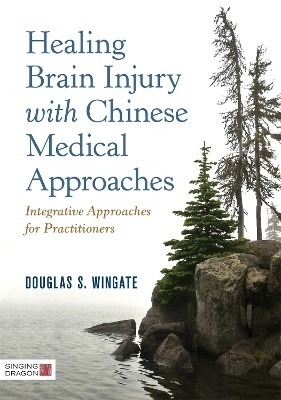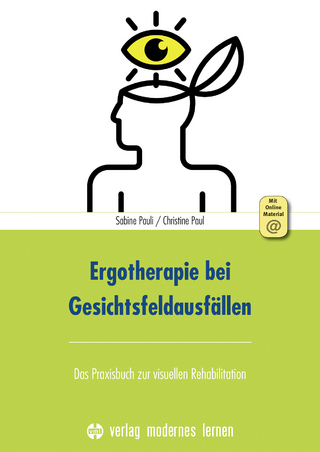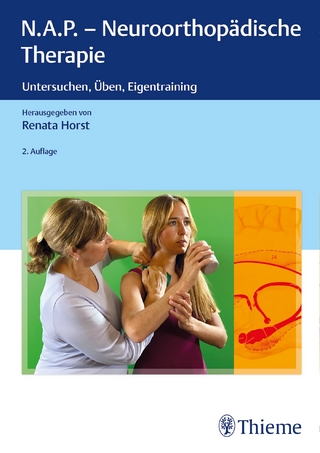
Healing Brain Injury with Chinese Medical Approaches
Singing Dragon (Verlag)
978-1-84819-402-1 (ISBN)
Learn to treat symptoms of traumatic and acquired brain injury using Chinese medicinal methods of acupuncture and herbal medicine. Covering both Western and Chinese medicine understandings of the brain, the book provides a thorough exploration of treatment options, including multiple acupuncture systems, Chinese herbal formulas, dietary and orthomolecular recommendations, and standard biomedical approaches.
Many symptoms associated with brain injury can be effectively addressed or reduced using TCM, including chronic headache, fatigue, dizziness, pain, and anxiety among others. The book highlights the special considerations that should be taken when working with people with brain injury, as well as when treating particular subpopulations, including pediatrics and veterans.
Douglas S. Wingate is an acupuncturist in private practice specializing in brain injury. He has presented at the Pacific NW Brain Injury Conference and been a board member and volunteered with multiple non-profits for brain injury. He lives in Oregon, USA.
Part One: Introduction. 1. The "Silent Epidemic". 2. Standard Assessment and Diagnostics. 3. Treatment Mechanisms of Acupuncture. Part Two: Neuroanatomy and Pathology. 4. Brainstem and Cranial Nerve Injury. 5. Cerebellum Injury. 6. Occipital Lobe Injury. 7. Limbic System Injury. 8. Parietal Lobe Injury. 9. Temporal Lobe Injury. 10. Frontal Lobe Injury. Part Three: Chinese Medical Concepts and Approaches. 11. Nao: The Chinese Medical Concept of the Brain. 12. The Concept of Blood Stasis in Brain Injuries. 13. Chinese Medical Approach to Mild Brain Injury/Post-Concussion Syndrome. 14. Chinese Medical Approach to Acute Brain Injury. 15. Chinese Medical Approach to Chronic Brain Injury. Part Four: Physical Symptoms. 16. Headaches. 17. Fatigue. 18. Dizziness. 19. Tinnitus. 20. Nausea/Vomiting. 21. Dysphagia. 22. Seizures. 23. Chronic Pain. 24. Numbness/Neuralgia. 25. Paralysis/Atrophy. 26. Hormonal Dysregulation. 27. Incontinence and Bowel Disorders. 28. Sexual Dysfunction. 29. Visual Disturbances. 30. Sleep Disturbances. Part Five: Cognitive Symptoms. 31. Attention/Concentration. 32. Impaired Memory. 33. Executive Function and Cognition. 34. Dementia. 35. Language and Communication. Part Six: Mental/Emotional Symptoms. 36. Anxiousness. 37. Depressed Feelings. 38. Mania. 39. Bipolar. 40. Obsessive Compulsive Disorder/Impulse Control. 41. Schizophrenia. 42. Hallucinations. 43. Post-Traumatic Stress Disorder (PTSD). 44. Behavioral Changes and Emotional Lability. 45. Substance Abuse. Part Seven: Special Considerations. 46. Special Considerations in Pediatric and Adolescent Brain Injury. 47. Special Considerations in Military Populations. 48. Other Natural Therapeutic Considerations: Diet and Exercise. Appendices.
| Erscheinungsdatum | 14.06.2018 |
|---|---|
| Zusatzinfo | approx. 15 black and white figures |
| Verlagsort | London |
| Sprache | englisch |
| Maße | 182 x 261 mm |
| Gewicht | 1256 g |
| Themenwelt | Sachbuch/Ratgeber ► Gesundheit / Leben / Psychologie ► Alternative Heilverfahren |
| Medizin / Pharmazie ► Naturheilkunde ► TCM / Ayurveda | |
| Physiotherapie / Ergotherapie ► Rehabilitation ► Neuro-Rehabilitation | |
| ISBN-10 | 1-84819-402-1 / 1848194021 |
| ISBN-13 | 978-1-84819-402-1 / 9781848194021 |
| Zustand | Neuware |
| Haben Sie eine Frage zum Produkt? |
aus dem Bereich


